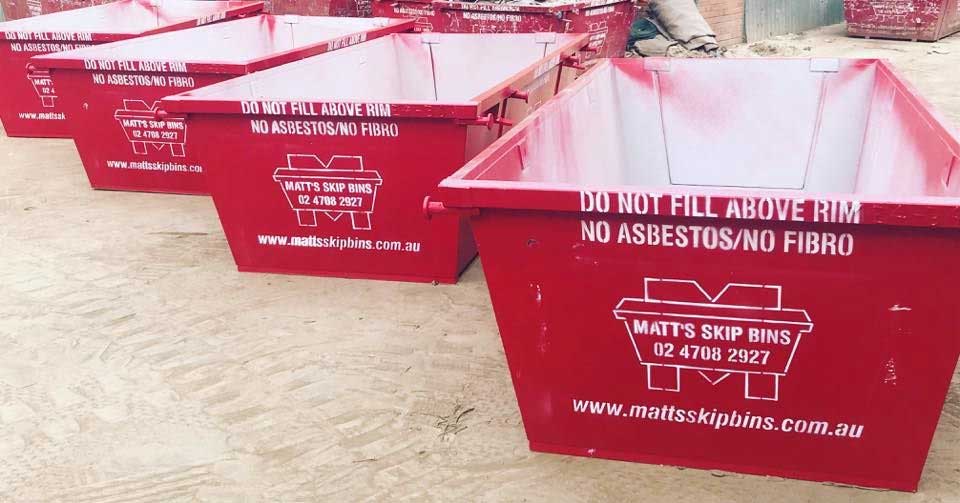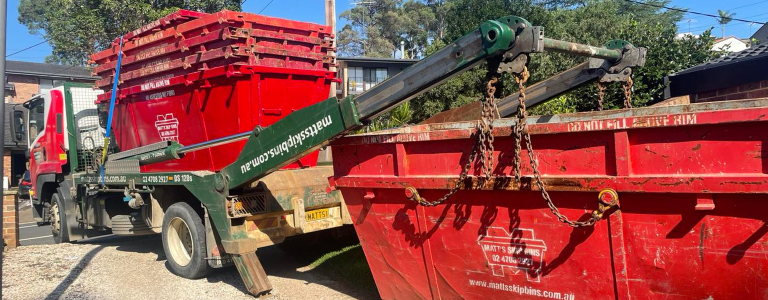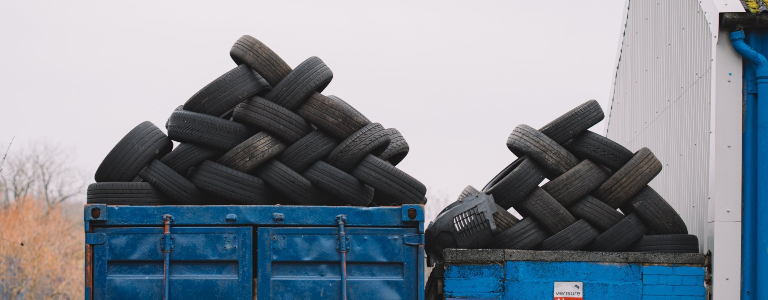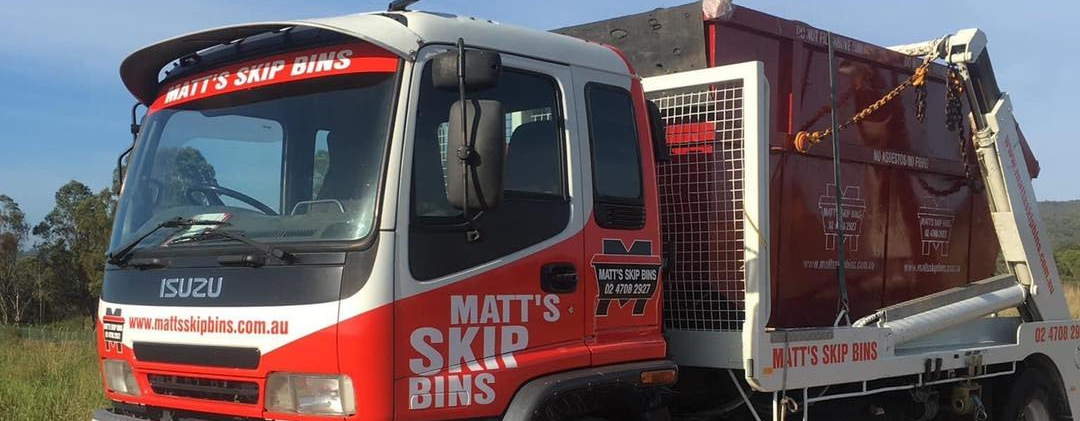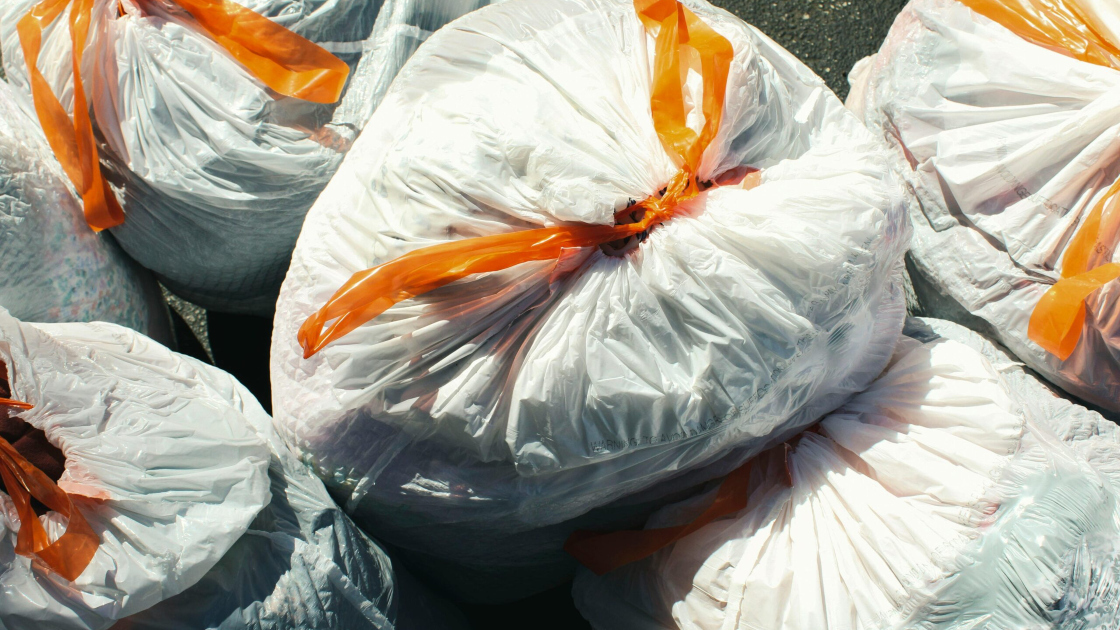
03 Apr • 4 min Read
Skip bins are a convenient and efficient solution for waste disposal, offering a range of sizes to accommodate various projects. However, not all items can be disposed of in skip bins due to safety and environmental concerns. Understanding what can and cannot go in skip bins is essential to ensure responsible waste management. Here’s a comprehensive guide to help you navigate the dos and don’ts of skip bin disposal.
Prohibited Items: What NOT to Put in Your Skip Bins
In Australia, certain items are actually prohibited from being disposed of in skip bins due to safety, environmental, and regulatory reasons. These items include:
- Hazardous Materials: This category includes items such as asbestos, insulation, chemicals, pesticides, solvents, and paint. These materials pose significant health and environmental risks if not handled and disposed of properly. Specialised disposal methods are required for hazardous waste to ensure safety and compliance with regulations.
- Medical Waste: Items such as syringes, needles, pharmaceuticals, and medical equipment are considered biohazardous and should not be disposed of in skip bins. Proper disposal methods, such as medical waste collection services or drop-off points, are necessary to prevent contamination and health risks.
- Gas Bottles & Fire Extinguishers: Gas bottles and fire extinguishers pose significant safety hazards and require specialised handling and disposal methods. To ensure the safety of our staff and the environment, we kindly ask that you refrain from placing gas bottles or fire extinguishers in our skip bins.
- Food Waste & Nappies: While some organic materials are suitable for green waste bins, food waste should be composted separately or disposed of through municipal organic waste collection programs. Food waste can attract pests and create unpleasant odours if left in skip bins. Nappies are also prohibited.
Accepted Waste That We Can Take But That Others May Reject
- Electronic Waste (E-Waste): Items such as computers, televisions, printers, and electronic appliances contain components that can be harmful to the environment if not recycled properly. While many skip bin hire companies will not accept e-waste, we do. E-waste can also be taken to designated recycling facilities where it can be dismantled and processed for reuse or safer disposal.
- Mattresses: Mattresses are bulky and difficult to compact in skip bins, and their components can be challenging to recycle. Many local councils offer mattress recycling programs or collection services for proper disposal. Matt’s Skip Bins will accept mattresses but please note, that this will incur an additional fee.
- Tyres: Due to their non-biodegradable nature and significant environmental impact, used tyres are unsuitable for disposal in skip bins. However, they can be responsibly recycled or repurposed into other materials. Many automotive service centres provide tyre recycling programs for proper disposal. While Matt’s Skip Bins accepts tyres, please note that a surcharge applies. We don’t accept earthmoving tyres or tracks.
- Large Appliances: Matt’s Skip Bins will take items such as refrigerators, air conditioners, and washing machines. These appliances contain components that require specialised handling and recycling which we can do. You can also arrange for collection by waste management services or council curbside pickup that offers appliance disposal.
It’s important to check with your local skip bin hire company regarding waste disposal to ensure compliance and environmental responsibility. Proper disposal of prohibited items helps protect public health, preserve natural resources, and reduce pollution.
Types and Sizes of Skip Bins
At Matt’s Skip Bins, we offer a variety of skip bin sizes and types to suit different needs, from small residential cleanups to large-scale construction projects. Our range includes mini skips perfect for household tasks, such as spring cleaning or garden pruning, to larger sizes suitable for commercial and industrial projects. It’s essential to choose the right size skip bin to avoid overfilling and ensure efficient waste disposal.
If you’re unsure about which sizes are suitable for your needs, please visit our sizing guide page for more information at https://www.mattsskipbins.com.au/bin-sizes.
Waste Types and Disposal
While skip bins are versatile, not all waste types can be disposed of in the same bin. Here’s a breakdown of the common waste types and the appropriate skip bins for each:
1. General Waste: This includes household waste, furniture, and non-recyclable materials. General waste skip bins are suitable for disposing of these items and are available in various sizes to accommodate different volumes of waste.
2. Green Waste: Garden waste, such as grass clippings, branches, and leaves, should be disposed of in green waste skip bins. These bins are specifically designed for organic materials and can be composted or mulched for environmental sustainability.
3. Construction Debris: Renovation waste, rubble, bricks, and concrete should be placed in construction debris skip bins. These bins are sturdy and can withstand heavy materials, making them ideal for construction and demolition projects.
4. Hazardous Materials: Items such as paint, chemicals, insulation and asbestos are considered hazardous and should not be disposed of in skip bins. Specialised hazardous waste disposal services are available for the safe removal and disposal of these materials.
If you want to know more about the types of waste or which bin suits your needs best, please refer to our waste type page at https://www.mattsskipbins.com.au/waste-types.
Why Proper Waste Disposal Matters
Proper waste disposal is essential for environmental sustainability and public health. By segregating waste types and disposing of them correctly, we can reduce pollution, conserve natural resources, and minimise landfill contributions. It also helps to prevent accidents and hazards associated with improper waste handling, such as contamination and environmental damage.
At Matt’s Skip Bins, we provide a range of skip bin sizes and types to accommodate various waste disposal needs. By choosing the right skip bin and disposing of waste properly, get in touch if you have any questions or would like to speak to an expert.

